Immigrants on Martha’s Vineyard, regardless of documentation, will not be targeted for deportation by local law enforcement agencies. That was one theme that emerged during a community forum on immigration held on Tuesday night at the Edgartown Public Library. More than 80 people, including close to two dozen Brazilian immigrants, attended the panel discussion, which was followed by a question and answer period.
The forum was organized by the Martha’s Vineyard Social Justice Foundation, which was incorporated in 2013 to uphold “civil liberties, civil rights and social justice, and keep the flames going under all these issues,” said treasurer Arnie Reisman. The evening was designed to share information in advance of an incoming federal administration that has the Brazilian community on edge.
“People are afraid,” Meirelucia Nunes said in Portuguese translated by Elio Silva, a Vineyard businessman originally from Minas Gerais in southeastern Brazil. Ms. Nunes runs the Portuguese-language Facebook group Brazukada, which with more than 4,000 members has become the equivalent of Islanders Talk for the Vineyard’s Brazilian community. Some of the Brazukada members who attended Tuesday’s forum were afraid to even ask for translations, Ms. Nunes said, although a translator was available.
Yet one of the strongest messages from the nearly two-hour discussion was that Brazilians and other immigrants have nothing to fear from Island authorities, beyond the usual consequences to anyone found breaking local or state statutes.
“We will ask you if you have a driver’s license if you’re caught speeding,” said Oak Bluffs police chief Erik Blake. “We do not engage in asking people what their status is. That’s not the business we’re in. We enforce state and local laws. We do not enforce federal laws.”
Another message, reinforced by multiple speakers, was that immigrants of any status are entitled to all the basic civil liberties guaranteed by the U.S. Constitution, short of voting. These include a free public education and equal protection under the law.
“You don’t have to be a citizen to get full protection,” said Dylan Fernandes, freshman state representative for the Cape and Islands who was sworn in last week. A third-generation American from a Portuguese family, Mr. Fernandes joined Chief Blake in urging Island immigrants to come forward if they witness or are victims of crime.
“Don’t be afraid to report it. Report it to me,” he said, drawing applause. “You have a resource.”
Mr. Fernandes also raised the question of so-called sanctuary communities, which adopt a policy against prosecuting immigrants for their status. A bill has already been filed in the state legislation to make Massachusetts a sanctuary state, he said, and Island towns can institute their own sanctuary policies.
“Bring it up in town meeting for a vote,” he said.
Teachers and student advocates on the Island are already advancing a plan to designate schools as safe zones, where immigrants may pursue their right to public education without harassment, said Laura Silber of We Stand Together/Estados Todos Juntos Martha’s Vineyard. She urged Islanders to contact superintendent of schools Matthew D’Andrea and teacher union representatives to support the safe zones initiative.
Any undocumented immigrant under 21 should also see an immigration attorney, said Adriana Lafaille, a staff attorney for the American Civil Liberties Union of Massachusetts. On the Vineyard, free consultations are available through the Island Wide Youth Collaborative.
Moderator Rebecca McCarthy, an Island immigration attorney who formerly worked in Phoenix, Ariz., the site of Sheriff Joe Arpaio’s controversial raids on immigrant communities, asked panelists about the main challenges immigrant Island families might now face.
“Getting around,” said Mr. Silva.
Without documentation to obtain a driving license, immigrants are forced to drive illegally in order to get to work. While some communities outside Massachusetts have made it possible for undocumented immigrants to obtain licenses as a public safety issue, Mr. Fernandes said, Gov. Charlie Baker opposes such a move and it is currently prohibited under state law.
Immigrant families also lack “a viable path to citizenship,” said Mary Costello, an attorney for the Tomassian & Tomassian law firm in Edgartown. There are only two pathways, added Ms. McCarthy: employment and family-based petitions, each of which poses stiff challenges.
“The employment side can be very difficult,” Ms. McCarthy said. And the waiting period after a family-based petition is 13 to 16 years. “There’s just such a backlog,” she said.
Speakers at the forum emphasized the need for grassroots advocacy on behalf of immigrants’ rights. “It doesn’t take much to be an effective advocate on the local level,” Mr. Fernandes agreed.
Concluding the evening, social justice foundation vice-president Joe Carter promised more information, in English and Portuguese, would be posted on the group’s soon-to-debut website. He also had a message for the Brazilians in the audience.
“Know that our organization is ready to stand with you on any problem in the community,” he said. “You’re a part of our community. We want you to be a part of our community. We love you being a part of our community.”
After a loud round of applause from the English-speaking audience, Mr. Silva translated Mr. Carter’s words into Portuguese and the Brazilians applauded as well.
Website for the Martha’s Vineyard Social Justice Leadership Foundation is socialjusticemv.org.

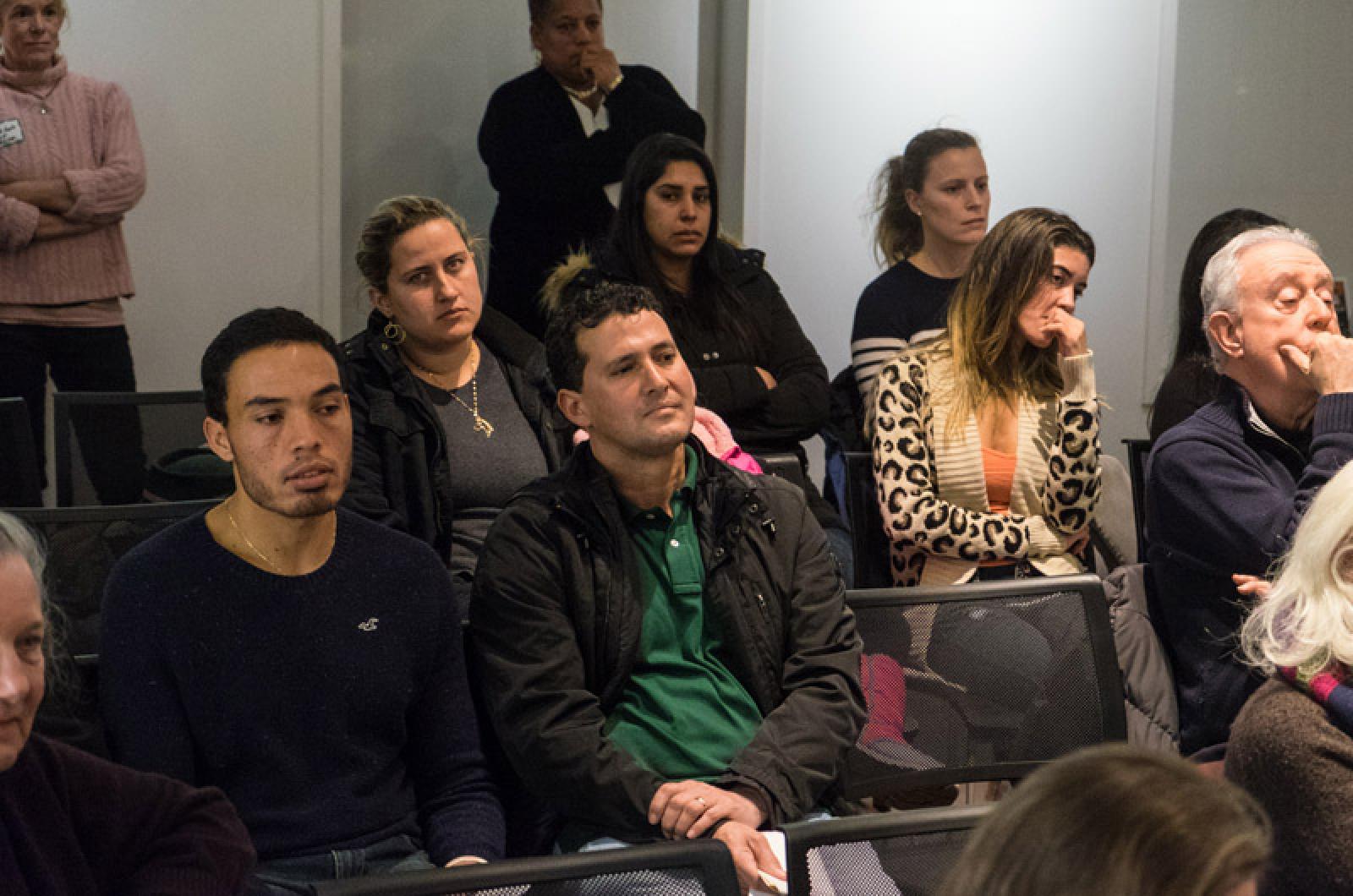
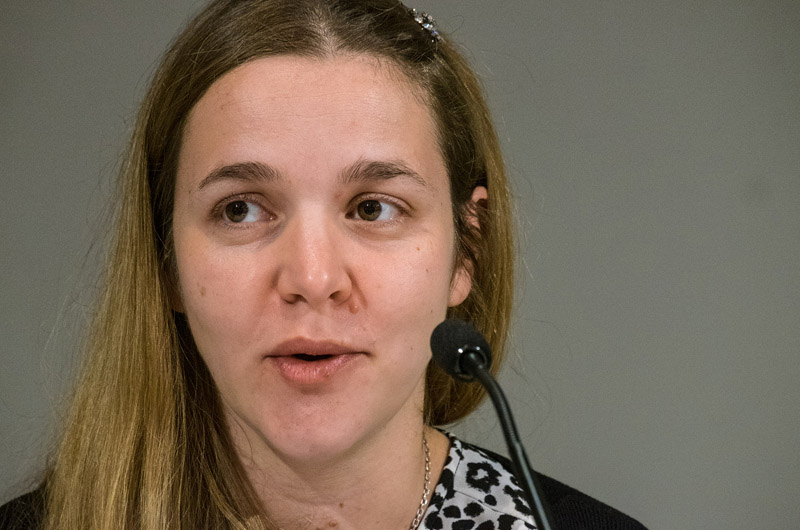
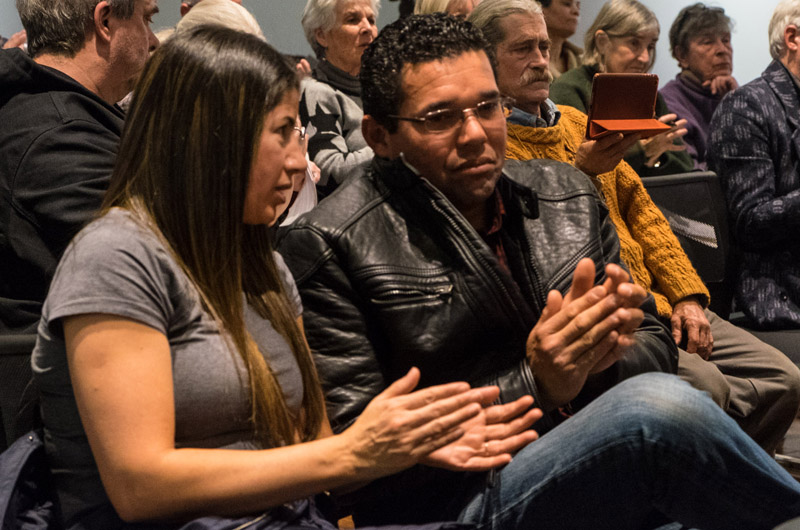
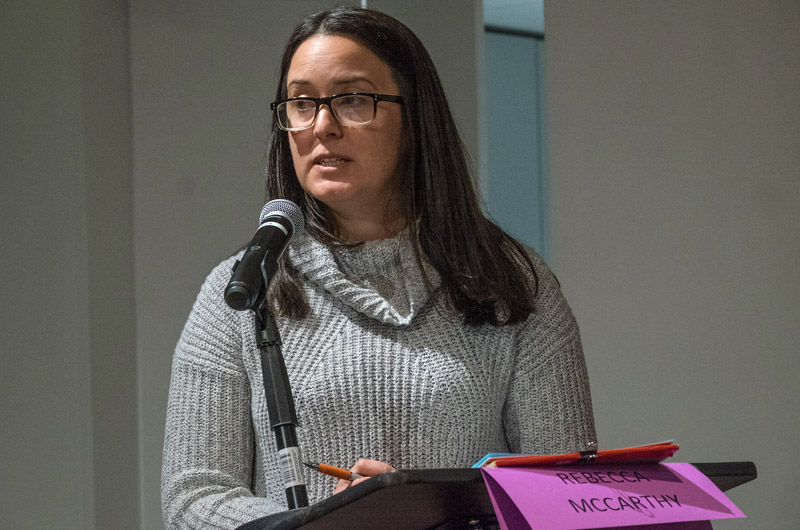
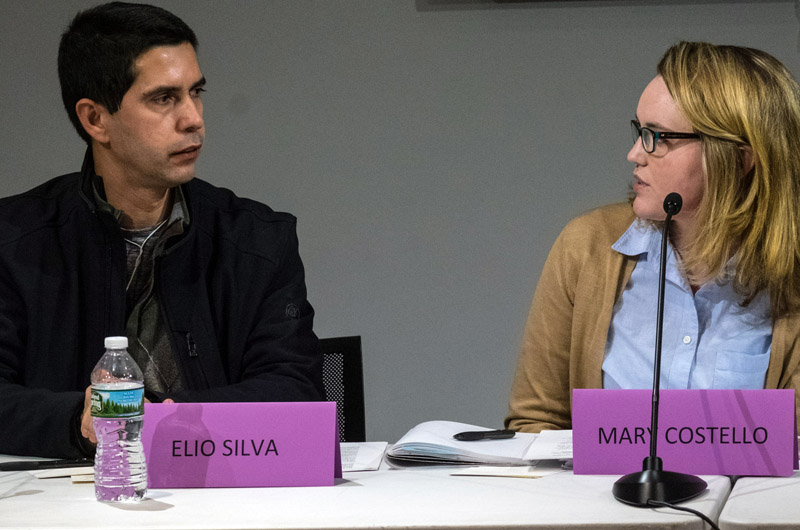
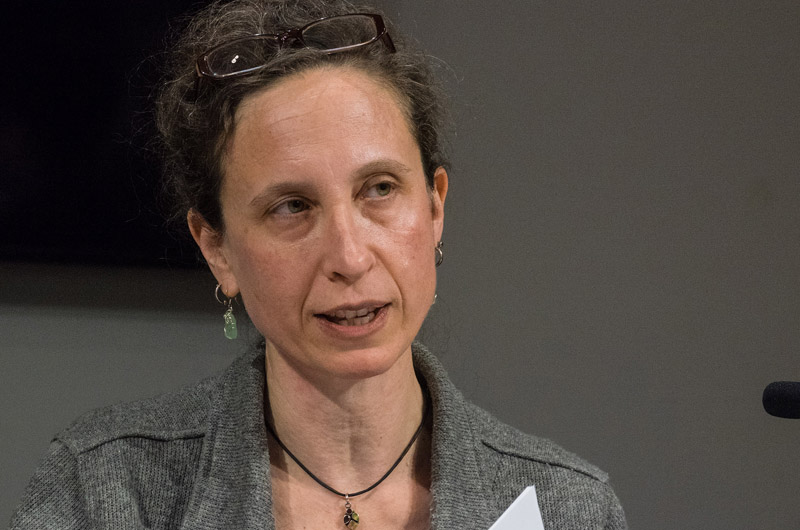
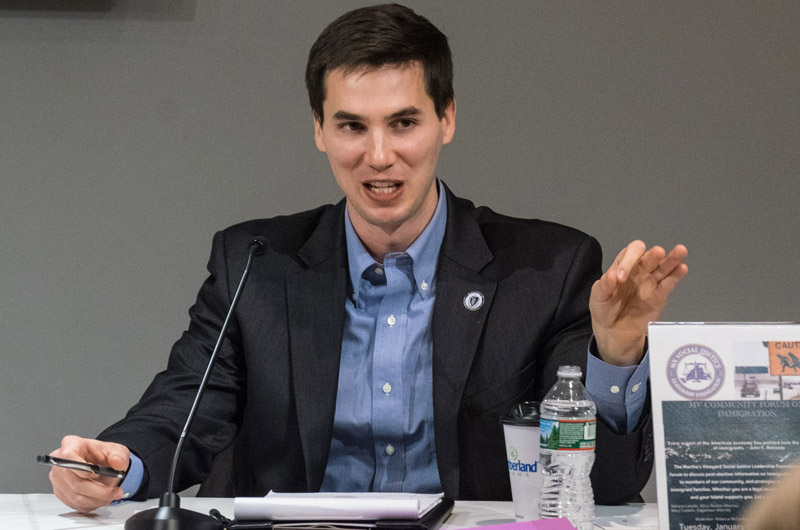





Comments (11)
Comments
Comment policy »